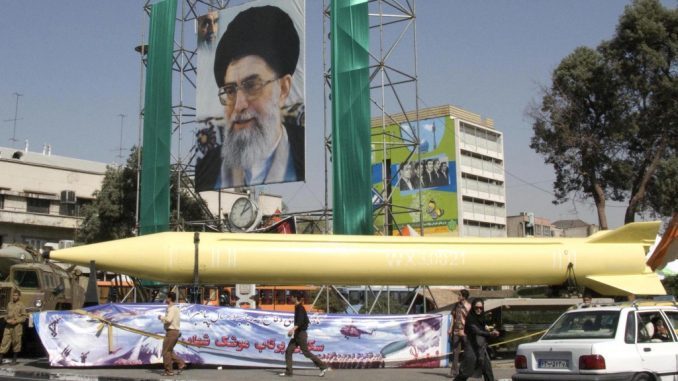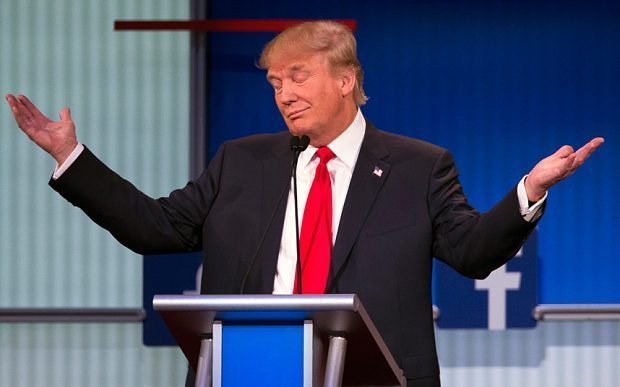
As the tension between the US and Iran reached a critical point, a key politician called the Trump administration to take more defensive measures to protect the US against the threats of Iran and North Korea.
Barack Obama, The former US leader, was behind the historic Iran nuclear deal with P5+1 powers, agreed upon last year, which saw Tehran agree to amend its nuclear output in order to lift all nuclear-related economic sanctions, freeing up tens of billions of dollars in oil revenue and frozen assets.
After lifting the sanctions, Iranian president Hassan Rouhani visited Europe and made deals that worth billions of dollars. European companies started looking for investment opportunities in the growing Iranian market.
However, Trump’s election might change the whole game and threaten the development that was built in the past months.
Trump has said during his election campaign that the deal as “disastrous” and said it would be his “number one priority” to dismantle it.
These threats became clearer after Trump’s inauguration, as he signed an executive order temporarily barring thousands from seven countries in the Middle East and Africa, including Iran, from obtaining visas to travel to the United States.
In a clear challenge, a ballistic missile test was conducted by Iran on Sunday.
A U.S. defense official said that the missile test ended with a “failed” re-entry into the earth’s atmosphere, and later German sources said that the test included nuclear-capable missiles that are considered a breach of the nuclear deal.
After that Trump announced that “we’re officially putting Iran on notice”, and declared new sanctions against Iran later.
Iranian new threats
In response to Trump’s sanctions, Iran launched new military drills and declared its readiness to attack the US and Israel if it senses any threat.
The Iranian Revolution Guards Corps (IRGC) launched military drills dubbed in Semnan province in Northern Iran over the weekend.
“If the enemy makes a mistake our roaring missiles will hit their targets,” Commander of the IRGC Aerospace Force said.
“The US army’s fifth fleet has occupied a part of Bahrain, and the enemy’s farthest military base is in the Indian Ocean but these points are all within the range of Iran’s missile systems and they will be razed to the ground if the enemy makes a mistake,” Iranian government official said.
“And only 7 minutes is needed for the Iranian missile to hit Tel Aviv,” he added.
Having more defenses to neutralize Iran’s threat
Republican Representative Mac Thornberry said that the United States should invest more in missile defense given missile testing by North Korea and Iran.
“If you look at what’s happening around the world, I would mention Iran and North Korea, the importance of missile defense is increasing,” Thornberry said at a roundtable discussion with reporters.
He said there was a need both to provide more systems and to improve missile defense technology. “Actors around the world are building missiles that are harder to stop,” he added.
Thornberry’s position was a sign of support in Congress for military spending to counter North Korea after President Donald Trump during the 2016 election campaign raised doubts about future U.S. funding to defend allies like South Korea and Japan.
Jim Mattis, Trump’s defense secretary, told South Korea last week that Washington and Seoul would stand “shoulder-to-shoulder” to face the threat from North Korea.
Both South Korea and the United States have recommitted to plans to deploy an $800 million advanced missile defense system in South Korea later this year.
More broadly, Thornberry also said he expected an end to strict limits on defense spending now that Republicans control both Congress and the White House.
The 2011 Budget Control Act imposed across-the-board cuts on government spending, and under former President Barack Obama, a Democrat, congressional Democrats were able to ward off Republican pushes to increase the defense budget without also raising spending on non-defense items such as education and medical research.
“I think we have a tremendous opportunity to do the right thing,” Thornberry said. “There’s more of the federal budget being looked at, in play, if you will, than has been the case for many years.”
Iran’s response and the long-awaited chance
Iran is likely to calibrate its responses based on how the U.S. acts.
Tougher U.S. sanctions could convince Tehran to start reinterpreting the terms of the nuclear deal, said Mohammad Marandi, a political analyst in Tehran.
“The Iranians will reciprocate,” he said. “The more the Americans disregard the agreement … the more the Iranians will find new ways of interpreting the text that do not work to the benefit of the United States.”
Ali-Akbar Velayati, the foreign adviser of Ayatollah Ali Khamenei, Iran’s supreme leader, predicted this week that “the US will be the final loser”.
“It is not for the first time that a naive person from the US poses threats to Iran,” he told state media.
“Our missile drills are a show of our might,” added Tehran Friday prayer leader Ayatollah Ahmad Khatami. “We are living in a world of wolves – wolves such as the arrogant government of America. In this world of wolves, should we remain unarmed and they do whatever damn things they want? No way! This will never happen!”
More direct action could include an uptick in harassment of U.S. warships by Revolutionary Guard speedboats in the Gulf, or new cyberattacks like one that crippled the network of Saudi Arabia’s state oil company in 2012.
Iran also could boost support for regional allies such as Lebanon’s Hezbollah or the Houthis in Yemen.
In addition, this war can be the political victory that the hardliners have sought since te nuclear deal
Iranian Supreme Leader Ali Khamenei regularly criticizes the United States and the deal, saying it should not be trusted and it wasn’t doing its part of the deal.
Khamenei has already promised to “set fire” to the nuclear deal if the West violates it. and has repeatedly complained it has not received benefits promised.
Trump’s war on Iran would just prove him right and will strengthen his hold on the Iranians’ minds, who will just see the west as the devil their leader always spoke about.



